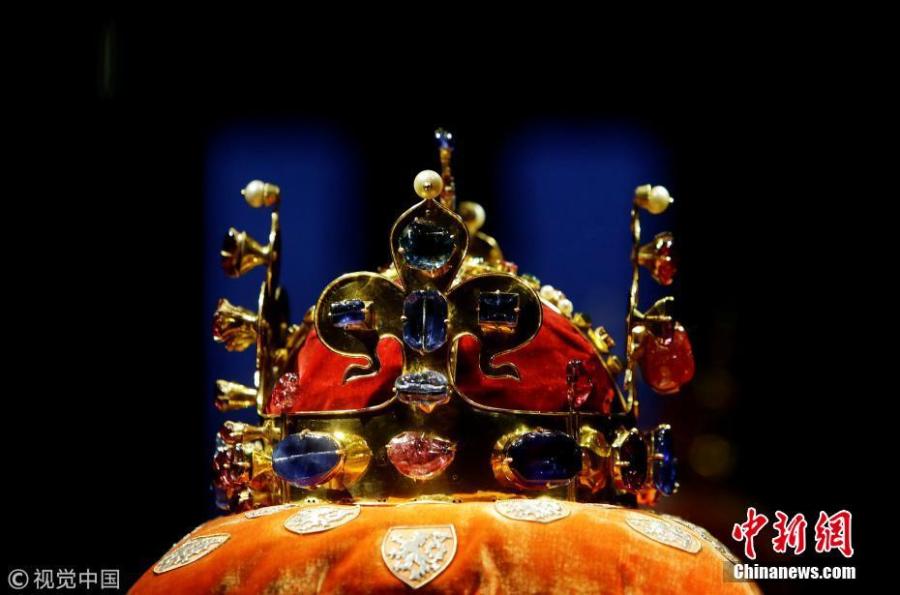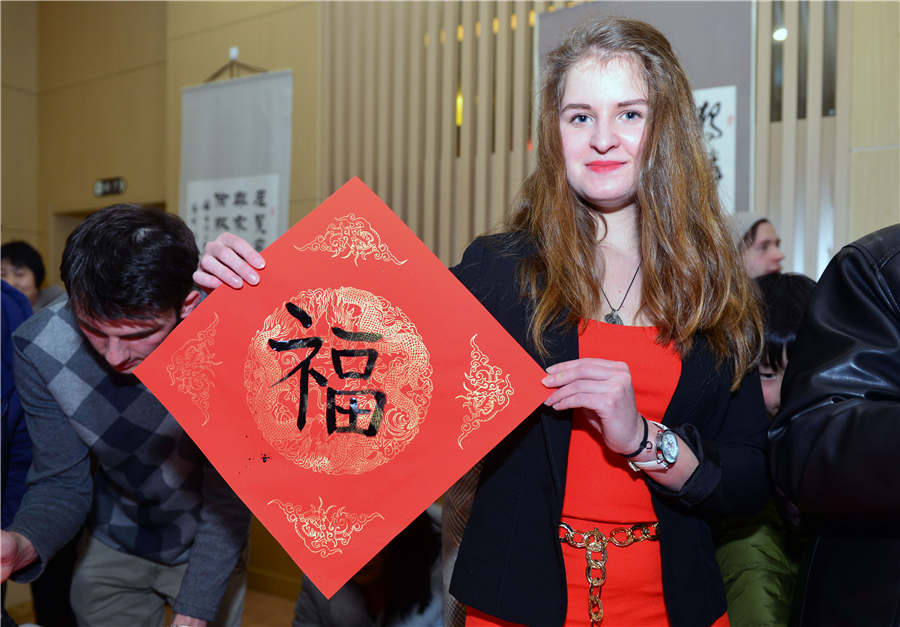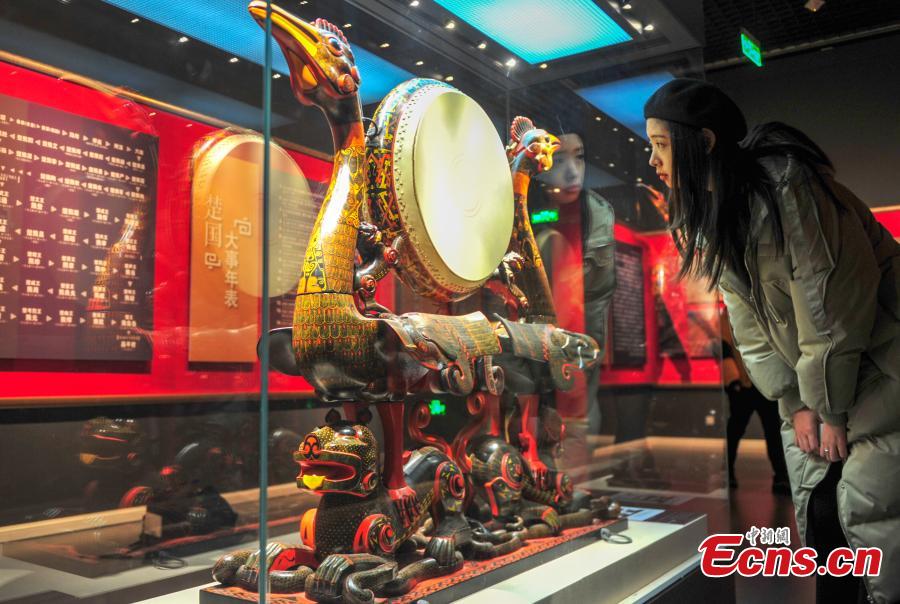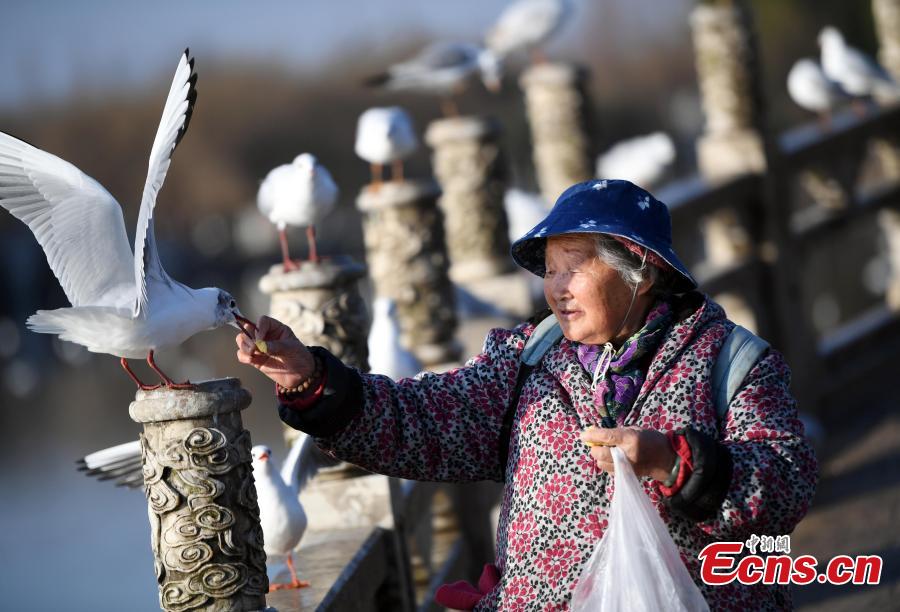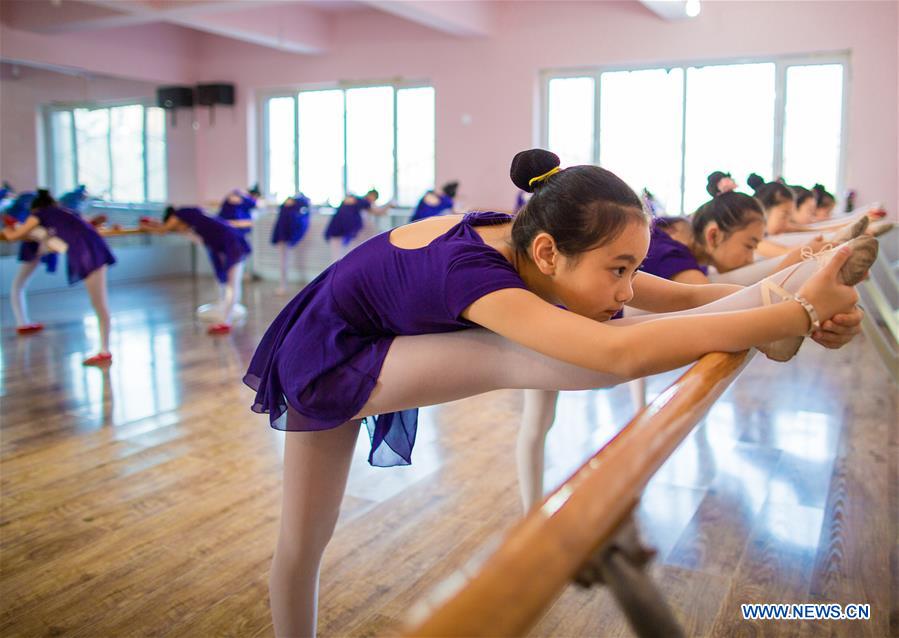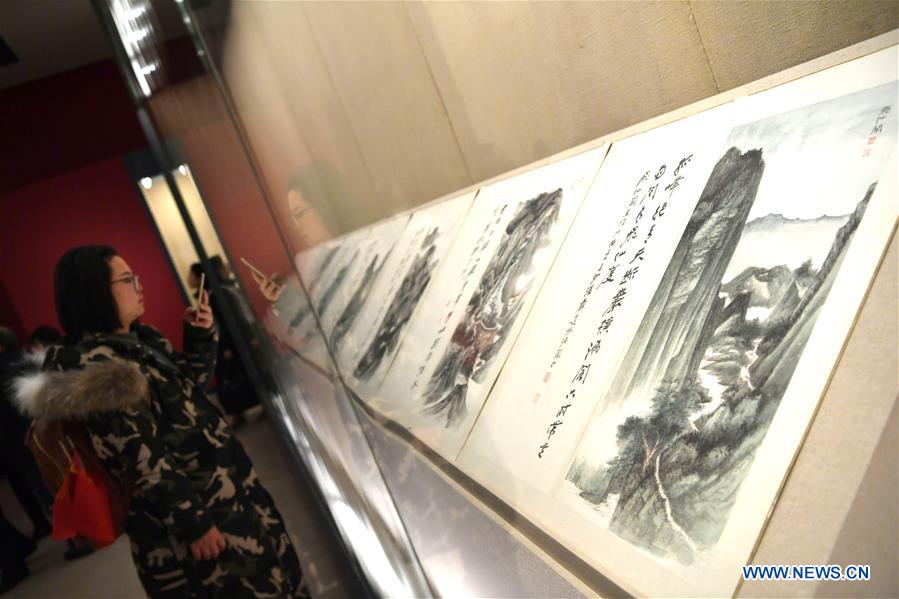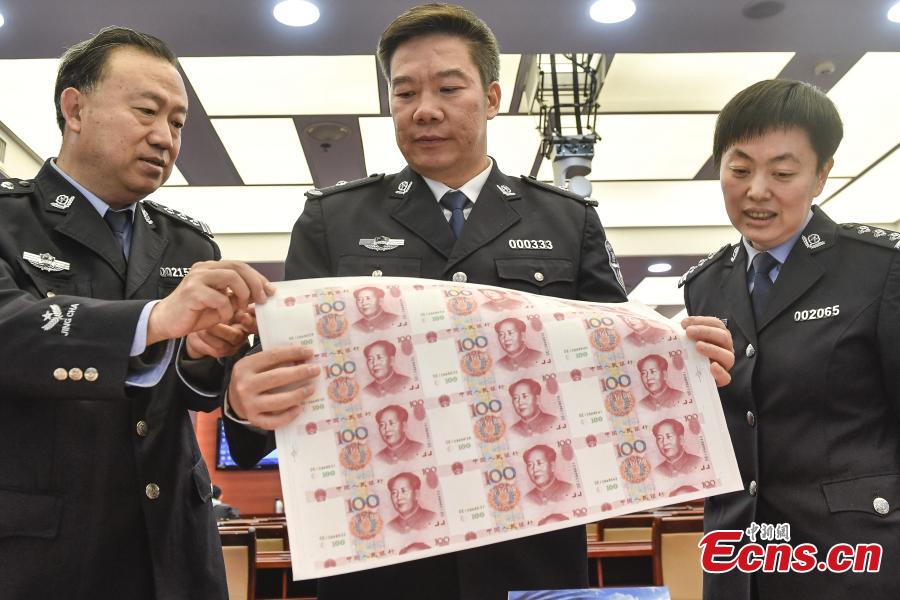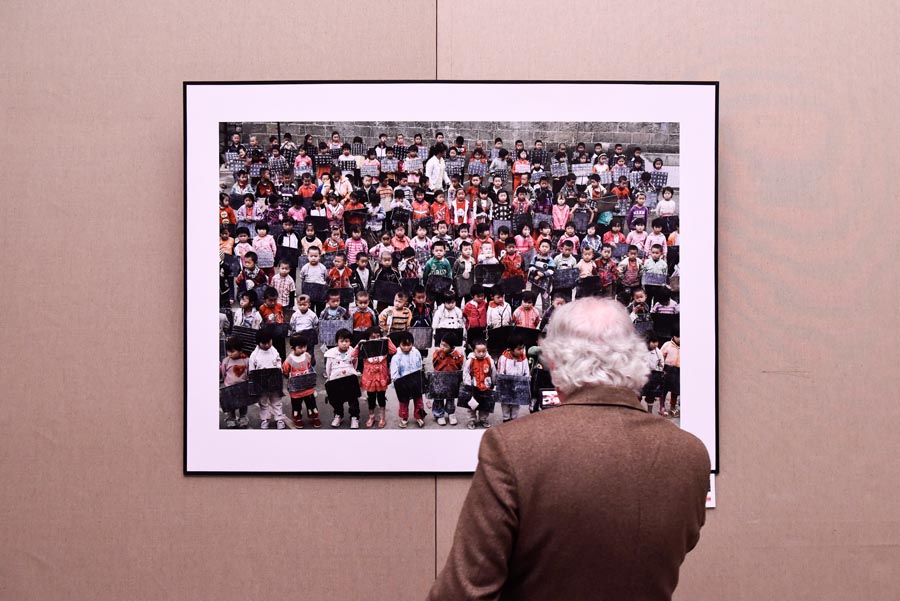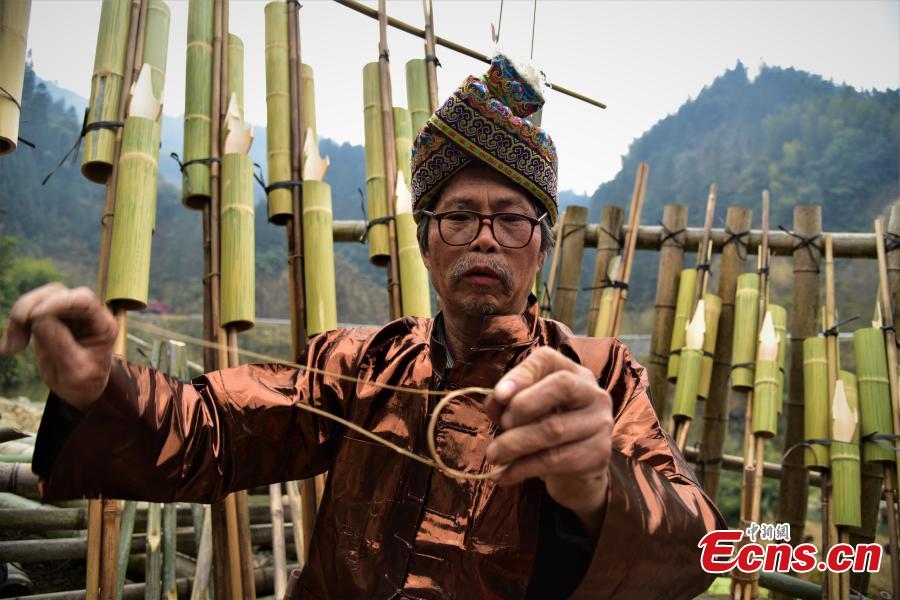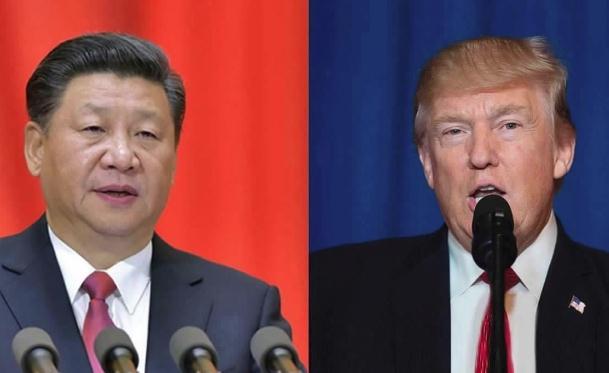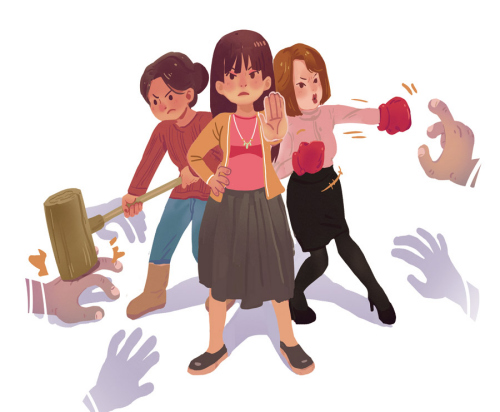
(Liang Luwen/For China Daily)
Experts say gender equality is gaining ground among the younger generation.
The #MeToo movement in the United States, which has exposed alleged widespread sexual assault and harassment in Hollywood, reached a crescendo on Jan. 7 when TV host and philanthropist Oprah Winfrey gave a rousing speech at the Golden Globes ceremony in Los Angeles.
"I want all the girls watching here now to know that a new day is on the horizon," she said, as the star-studded crowd erupted in applause.
Thousands of miles away, that message also resonated in China. Women quickly began to speak out about sexual harassment, but rather than celebrities leading the chorus of disapproval as in the West, the movement is centered on college campuses.
Luo Qianqian is being credited as the first Chinese woman to evoke the spirit of #MeToo. Early this month, she accused Chen Xiaowu, a professor at Beihang University in Beijing, of sexual assault when he was her doctoral adviser in 2005.
She then contacted fellow alumni who had endured similar experiences, and provided evidence to the college's disciplinary watchdog, including damning audio recordings. As a result, Chen was fired last week.
Other women quickly followed suit. Within days, three more cases had been brought to public attention, all involving female college students who claimed to have been sexually assaulted or harassed by lecturers.
The most recent allegations were made anonymously by a graduate of the University of International Business and Economics in Beijing, who said the strength shown by Luo and the other women had inspired her to speak out.
She alleged that a male professor sexually assaulted her in his office. To back up her claims, she posted text messages exchanged between the two in the wake of the alleged assault online.
A study released in 2014 by the All-China Women's Federation suggested that the problem is worryingly prevalent in China. The federation surveyed 1,200 female students at 15 universities; in response, 50 percent said they had been subjected to sexual misconduct, either physical or verbal, while 23 percent described the situation as "severe".
In most cases, the aggressor was male, usually a classmate, though 9 percent of respondents claimed they had suffered at the hands of lecturers or college officials.
According to research released in March by the Guangzhou Gender and Sexuality Education Center, an NGO in Guangdong province, 70 percent of college students and graduates claimed to have been sexually harassed-again, verbally or physically-with women accounting for 75 percent of the victims.
The findings were based on 7,000 responses to online questionnaires.
However, campuses are just one of the places where sexual harassment frequently occurs, according to Lyu Xiaoquan, executive director of the Beijing Qianqian Law Firm, which specializes in the legal protection of women's rights.
"In the past two decades, we've seen a rising number of complaints relating to incidents in the workplace, but the majority still relate to public incidents, such as casual molestation (opportunistic assault on public transportation, for example)," he said.
According to Lyu, his firm handles eight to 10 sexual harassment cases a year, but many more women consult the firm's lawyers seeking help: "We estimate that probably seven times the number of cases we see go unreported."
Beating stigma
Many experts hope the #MeToo movement will change the situation and also help to remove the stigma often attached to women who speak out against sexual abuse.
Cai Yiping, a campaigner for economic and gender equality in Beijing, said women have remained silent about sexual harassment for decades for fear of not being taken seriously or being blamed for the man's behavior.
Harassment often happens in environments where the balance of power is unequal, according to Cai. "A boss can decide an employee's future; a professor can stop a student from publishing a paper or from graduating; and men have a greater say than women in a male-dominated society," she said.
"There's often an undertone of 'blame the victim', which overlooks the manipulative behavior of the person in power. Plus, many victims fear their allegations will be dismissed. Some women don't even see that the way they are being treated is wrong; they believe it's an unspoken rule they must simply accept."
Some experts believe younger women are now in a prime position to bring about changes in gender equality.















